- Home
- Tara Sue Me
Madame President Page 12
Madame President Read online
Page 12
The next morning, I’m in David’s office, waiting for him to arrive. I glance at my watch for the fifth time, and I’m more than a little irritated. It’s after eight thirty and he’s not here yet. He typically arrives much earlier. I’ve never known him not to be here by five after eight.
Outside in the hallway, two men and a woman pass by and stop after a few steps. I can’t make out what they’re talking about, but I recognize Navin’s voice. Someone must have said something funny, because he laughs. His laugh is low and gravely. It’s a laugh that leaves you wanting to hear him speak to you with that exact tone as he whispers all the dirty things he wants to do to you. A tiny shiver of acknowledgement runs down my spine.
“Madame President,” David says, interrupting me before I can venture further down that path, and tossing his briefcase on his desk. “I apologize. I didn’t know you wanted to speak with me this morning.”
“Is everything okay?” I ask, wanting to make sure there wasn’t anything going on I didn’t know about.
His shoulders fall a touch, but his expression doesn’t waver. “Just a difference of opinion with Oliver this morning. Nothing to worry about.”
David and Oliver aren’t the type of couple who argue much. In fact, I can’t remember the last time I heard about the two of them disagreeing on anything.
“Are you sure everything is okay?” I’m suddenly worried one of them is sick or something and I’ve been too busy to notice.
David looks at me and for the first time in a long time, he’s not my political adviser or my Chief of Staff. He’s David Herdsman. My friend. “Yes, Anna,” he says, dropping his voice so no one can hear his horrible faux pas of calling the President by her given name. “I promise, it’s nothing major. Just a little tiff. But it meant I left later than I should have and traffic was a lot heavier than I expected.” His face breaks out into a smile. “Not that you know what a commute is anymore. All you have to do is walk down the hall.”
When David jokes like this, I know everything is fine. Feeling better, I cross my arms and lift an eyebrow. “Whatever. How about you and Oliver have your differences of opinion at night next time so it doesn’t impact my day?”
He doesn’t say anything, probably because he knows I’m not joking. The truth is, we have too much to do and for at least the next four years, his primary focus has to be his job. I know it’s easy for me to say that because it’s only me, and if Oliver was dangerously ill, it’d be different. But hell, I’ve given up a lot of things to get to where I am today. I’ve worked damn hard for too long, and you better believe my focus will be exactly where it needs to be.
I take a deep breath to restore my calm and it returns. “I came by this morning to bring those files back to you,” I nod toward where they are on his desk, right beside the briefcase, “and to let you know it appears as if one of the files that was inside originally isn’t.”
I watch him as he answers, wanting to see if he gives anything away with his body language. He turns so I can’t see his face and picks up the file. “I took it with me.”
“I thought you said you only needed a glance at it.”
“It’s one file, Madame President,” he says. “One. A file I thought would be better to take with me than for it to appear as if I were lounging in your bedroom unaccompanied.”
When he words it the way he has, my questioning the matter sounds ridiculous and trite. I remind myself David hasn’t been on the phone when I talk with Director Wiggins. Nor does David know anything at all about the potential leak on my staff.
“Don’t forget who’s President here, Mr. Herdsman and don’t question my ability to distinguish between what is important and what is not. I have access to information you don’t and information that I can’t share with you. Deal with it or find yourself another job.”
It’s the harshest I’ve ever spoken to him, but not only is it true, it hasn’t escaped my attention the chatter from the hallway has stopped. The entire West Wing listens for how I will handle errant staffers. Like it or not, I know I’m setting precedence.
I’ll hand it to David. He looks abashed at his behavior. “Of course. My apologies, Madame President. It won’t happen again.”
I nod and turn to walk out his door, noticing as I do the many hallway conversations resume as if nothing had stopped them. All expect for one conversation. Whatever Navin and his two cohorts were talking about hasn’t been picked up again. Navin, for whatever reason is watching me, but the two with him are looking at him.
“Yes, Mr. Hazar?” I ask him, because he’s still just standing there staring at me. I resist the urge to wipe my face or to look down to make sure I don’t have breakfast displayed on my clothes. “Did you have a question for me?”
“No, Madame President,” he says, but there’s something lurking behind his eyes.
But if he’s not going to share it, I’m not going to beg for him to tell me. I simply nod and walk toward my office. The heat of his gaze along my back means he’s watching.
Focus. Priorities. Exactly the way I told David not three minutes before.
Chapter Twenty-Four
Him
GBNC Studios
New York City, New York
“Tell me, Madame President,” I say to Anna. “What has been the single most defining moment of your life up to now?”
We’re in GBNC’s New York studio, and, for the first time ever, I’m interviewing Anna. It’s for a special we’re running which is why it’s happening here and not in DC. Gabe made it a point this morning to hunt me down so he could tell me he’d be more than happy to take over and do the interview if I felt unable to conduct it myself. I told him to get the hell out of my face and to worry about his own work. His resulting laughter only made me more ornery, and I’ve been avoiding him ever since. Out of everyone here, he’s the one who knows me the best, and can therefore see through my bullshit better than anyone. I have to keep my distance because I’m pretty sure he’ll be able to see how attracted I still am to Anna.
When the executives at GBNC first approached me about doing an interview with Anna, I told them no way. They were persistent, though, and when the pitch changed to make the interview more of a human interest piece, I told them I’d ask Anna. She was leery at first, as I expected her to be, but she thought the angle would be a good one.
She still has her doubts, that much is evident by the way she’s holding herself. It’s probably not noticeable to anyone who isn’t sitting close to her the way I am. Or maybe because I’ve been following her day in and day out for weeks, and I can subconsciously tell what sort of mood she’s in.
The setup is a regularly used one. We’re both in chairs facing the other. The room is dim, the audience watching at home will only see us against a dark backdrop. I’ve always preferred setting up interviews this way. Strip down everything, take away unnecessary distractions, and all you’re left with is that person.
Or in Anna’s case, that person and her mask.
She’s thinking about my question, though why I’m not sure. I think the question is a fairly innocuous one. When I wrote it out, I imagined she’d say something about election night or her inauguration. Something along those lines.
Or maybe a case from her time as a human rights lawyer.
Which is why I’m shocked when she begins talking about a young woman she befriended in high school, an immigrant from India who opened Anna’s eyes to the injustice and inequalities in the world. “Listening to her talk about the lawyer who helped her escape from her father and the fifty year old man he wanted her to marry, made me realize one person can make a difference.”
“You became a human rights lawyer as a result of that friendship.” I say it as a statement and not a question. I’d known about her background in human rights, it came up frequently during the election, but this was the first time I’d heard the reason why. “Out of curiosity,” I ask. “Do you know where she is today or what she ended up doing?”
“Oh, yes,” she an
swers a smile in her eyes. “She’s with me in Washington working on my staff as an advisor on international human rights.”
We talk a bit about her experience as a human rights lawyer and move on to how her boss had been the one who first brought up how she should get involved in public service.
“Running for any sort of office had never been something you wanted to do?” I ask, covering my surprise.
“Worse,” she says with a smile. “The thought had never crossed my mind before he mentioned it.”
“You said you shot him down. What happened that ended up changing your mind?”
“It’s like one of those songs that gets stuck in your head. An earworm,” she says with a tiny smile. “Even though I told him it wouldn’t happen under any circumstances, his voice telling me I should do it kept repeating in my head. Then one Saturday night about a week after, I was out with some girlfriends, and one of them brought up a case in which a convicted rapist sued the woman he attacked for joint custody of the child born as a result of his crime.” Her body stiffens in rage as she talks. “I realized only a broken system would allow for the possibility of something like that, and the one sure way to see it corrected was to be part of the process responsible.”
I smile. “And that’s when you knew you were going to run for office.”
“No,” she says in the deadpan tone I know so well. “That was when I realized I was in a lot of trouble.”
I can’t stop my chuckle. “Trouble, Madame President?”
“Yes, Mr. Hazar, trouble because I knew in order to be successful, I could no longer sit complacently in my comfortable corner of the universe. I was going to have to stand up and risk rocking the boat. And to be honest, it’s much easier to be complacent.”
“Maybe,” I say. “But you didn’t do that, you decided to stand. Why?”
“Where would we be as a country today if George Washington decided he’d rather stay at Mount Vernon? Or if Abraham Lincoln decided he was too awkward to be president? Or if JFK agreed America would never elect a Roman Catholic?”
Passion burns in her eyes as she speaks and in an instant it hits me, I’ve found her Achilles heel. It’s her eyes. She can’t put a mask on them because she has to see out, but consequentially it provides a way for others to see inside to the real Anna. I bet she doesn’t even know how vulnerable they are.
Anna is unaware of my epiphany as she continues. “Our country is great because at its core are men and women who are never satisfied to stay in their corners while there is inequality and injustice around them. The only thing we get by waiting for someone else to do something is lazy. I’ve been called a lot of things in the past, and I’ll no doubt be called a lot more in the future, but the one thing I’ve never been called and never plan to be called is lazy.”
She’s right about that. I’m not sure how much she sleeps, but based on the reports of those who get into the office earlier than I do, she’s always in the Oval Office by seven and it’s usually after six before she leaves. And that’s on a day when she’s in DC and not traveling.
The director signals to me, and I look at the clock. I’m surprised by how much time we’ve used. Not to mention, disappointed. I had a lot more questions to ask her. One glance at the paper I’m holding confirms as much.
George insisted on watching the interview and is standing behind the cameraman. I lift an eyebrow in his direction, hopefully he’s aware of how many more questions I have yet to ask. I try not to worry about his frown or the way he has his arms crossed.
Across from me, Anna stands and takes a step back, smoothing her skirt, even though it’s already straight. She looks at me, calm once more. “I have a meeting with the governor.”
“Of course,” I say, having stood when she did, and hold out my hand. “Thank you, Madame President, for taking the time to speak with me.”
“My pleasure.” She shakes my hand, but doesn’t look me in the eye. “I’ll see you back in DC.”
Before I’m able to reply, she turns, nods at George, and disappears down the hallway with agents following close behind. I suddenly feel as if I’ve completed a marathon and resist the overwhelming urge to sit back down. Interviews usually don’t leave me feeling so exhausted, but that one with Anna surely did.
George is making his way to me, and he’s still wearing a frown. That alone gives me even more reason to remain standing because I don’t understand why he’s unhappy. The interview went amazing as far as I can tell, and since I was the one closest to the interviewee, I should know.
“What the hell was that?” he asks, coming closer.
“What was what?” He’s clearly upset about something, it wasn’t only in my imagination.
“That so called interview.” He doesn’t stop when he gets near me, but keeps walking until he reaches the production control room, where he waves for me to join him.
So called interview? He has to mean the one with Anna, but for the life of me, I can’t think of one thing that went wrong. I consider it a win based on the fact we didn’t end up in an argument. Going in, that was really my only goal, and in my opinion, we blew it out of the water.
“We’ll watch it back,” George says, shooing everyone out, so it’s only the two of us. “Maybe I’m making more out of it than I should.”
I still don’t have any inclination of what he’s talking about, so I turn to watch the screen he’s pulling the video feed up on.
The playback starts, and it looks great, even better than I’d pictured. Anna is wearing a tailored burgundy suit. When I first saw it this morning, the color reminded me of the gown she wore in London. I’m wearing a dark gray suit, with an even darker tie. We don’t clash, of course, because the network would never go for that, and we don’t match. Yet, somehow, we compliment each other.
The audio starts, and George and I are both quiet as we watch and listen. I spend most of the playback focused on Anna. However, by the time the interview ends, I have an idea about why George is upset.
“I hope to God you don’t do something stupid and make the network look bad. I went to bat for you with Rainer. I’m not going to regret that, am I?” he asks.
“No,” I say quickly.
“Fortunately, the lighting and camera angles hide what I was most worried about.” He points to the image of Anna and myself, just after she answered my last question. “But you do see what I see don’t you?”
“I won’t deny there’s a chemistry between us,” I say. “But give me some credit, she’s the President of the United States, and I’m a news reporter. There is a less than zero percent chance of anything happening between us. Not only because I’m not stupid, but because she really doesn’t like me.”
“That would certainly explain how she was almost sitting in your lap by the time the interview ended. Because she doesn’t like you.”
I can’t deny what the camera shows, and it’s obvious we started out sitting further apart than we ended up. I don’t remember consciously moving closer to her, but I did. Several times. Though to be fair, she moved a few times as well.
“Like I said,” I repeat. “We have a chemistry between us. I can’t deny that, I wouldn’t even try. But she truly doesn’t like me. She’s said so herself.”
George has a look on his face I’ve never seen before. I don’t know what it means, but I don’t like it all.
“And you?” George says. “How do you feel about her?”
“She’s competent. Intelligent. Sarcastic.” I have to chuckle at that one. “She has this... essence or something about her.” And she’s compassionate and amazingly beautiful, but I keep that to myself.
“Essence, huh?”
I realize I’ve been staring off over his shoulder at nothing. “Yeah,” I say. “And she’s not a bad dancer. You know, if that’s your thing.”
Chapter Twenty-Five
Her 1081
Hotel de Pontalba
Official Residence of the US Ambassador to France
&nbs
p; Paris, France
It’s been three weeks since I did the interview with Navin in New York, and one week since it aired on prime-time television. It was, my advisors tell me, a successful interview. Successful means different things to different people. To my advisors, it means my ratings went up after. To me it means I’d kept my cool in that dark room with the hot spotlight on me, while being much too close to Navin. Of course, I don’t know what the final piece looks like, because I haven’t seen it.
Nor do I plan to do so.
I’m driving David mad, but don’t care. I lived through the interview, why would I want to repeat it? It’s not as if I don’t know what happened. Or at least, that’s what I tell David. The truth is, I’m afraid to watch. Afraid, because if I watch, all I’ll see are my physical reactions to Navin. It’s bad enough I know I have them, I don’t want to see the actual proof, even if no one else has picked up on it.
Fortunately, all I’ve heard anyone say is how engaged we looked, and that we have a certain kind of chemistry. Magic is another word people like to throw around, but I think they’re seeing things. The only magical thing about the interview is we were nice to each other the entire time. But of course with George in the room, Navin had to be on his best behavior.
Actually, now that I have a second to think about it, he’s been nice ever since the interview. Highly suspicious behavior if you ask me. Unfortunately, all David’s been asking is whether or not GBNC will want to do another one anytime soon.
God, I hope not.
Right, I say to myself. Because it’d be a real hardship to have to sit beside that fine specimen of a man for an hour or so and talk.
But that’s the thing. It’s not so much a talk. It’s him asking deep and insightful questions about me while I attempt to come up with smart and witty answers, trying not to picture him naked in the process.
I roll over and punch my pillow. I hate jet lag because it makes my insomnia worse, and when that happens, I lie awake and think about Navin. Then I start to talk to myself. Or worse, argue.

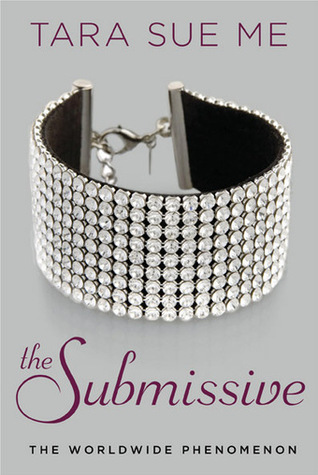 The Submissive
The Submissive The Dominant
The Dominant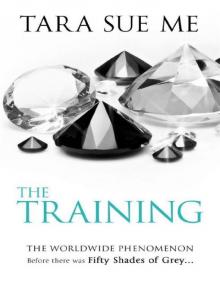 The Training
The Training The Flirtation
The Flirtation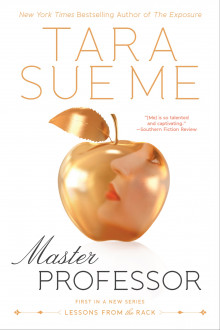 Master Professor
Master Professor Seduced By Fire
Seduced By Fire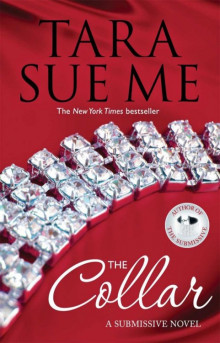 The Collar
The Collar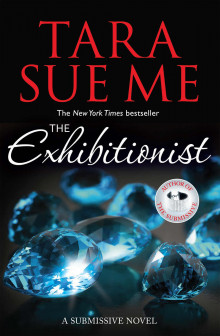 The Exhibitionist
The Exhibitionist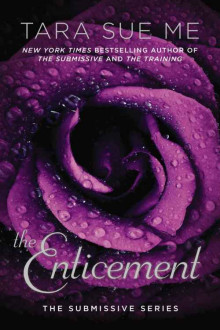 The Enticement
The Enticement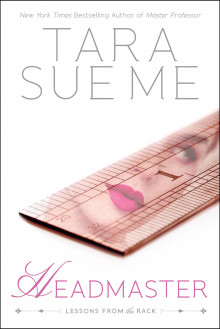 Headmaster
Headmaster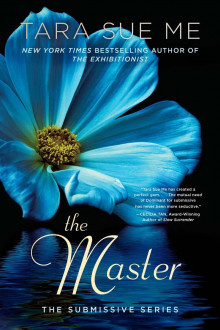 The Master
The Master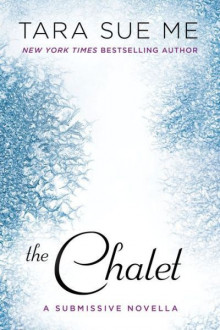 The Chalet
The Chalet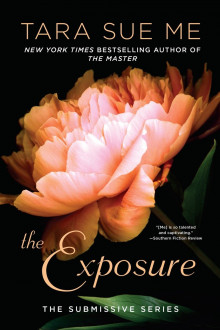 The Exposure
The Exposure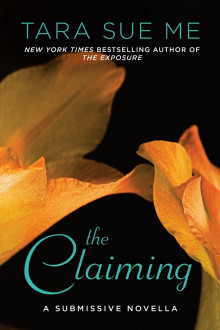 Claiming
Claiming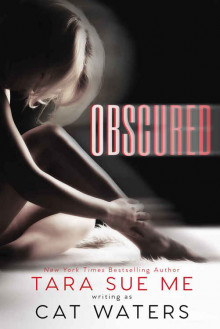 Obscured
Obscured Nathaniel's Gift: A Submissive Series Holiday Novella
Nathaniel's Gift: A Submissive Series Holiday Novella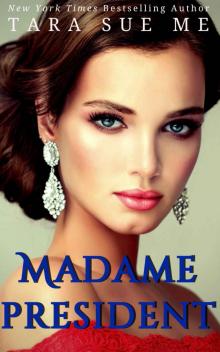 Madame President
Madame President The Mentor and the Master: A Submissive Series Novella
The Mentor and the Master: A Submissive Series Novella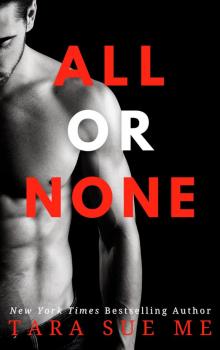 All or None
All or None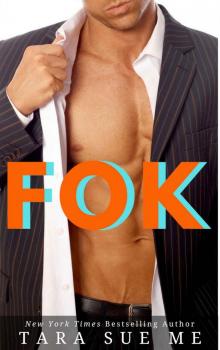 FOK (Wall Street Royals)
FOK (Wall Street Royals) American Asshole
American Asshole Bucked
Bucked Mentor's Match: A Submissive Series Standalone Novel (BDSM Romance)
Mentor's Match: A Submissive Series Standalone Novel (BDSM Romance)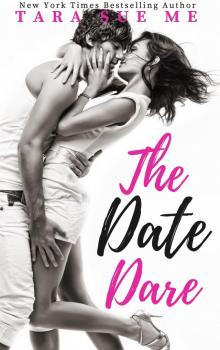 The Date Dare
The Date Dare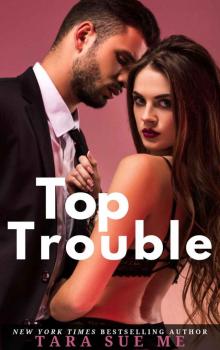 Top Trouble: A Submissive Series Standalone Novel
Top Trouble: A Submissive Series Standalone Novel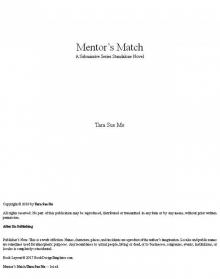 Mentor's Match
Mentor's Match Altered Allies
Altered Allies The Enticement: The Submissive Series
The Enticement: The Submissive Series American Asshole (Bachelor International Book 1)
American Asshole (Bachelor International Book 1)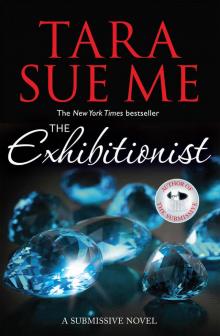 The Exhibitionist (The Submissive #6)
The Exhibitionist (The Submissive #6)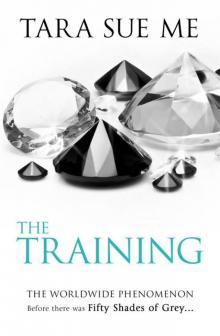 The Training (Book 3: The Submissive Trilogy)
The Training (Book 3: The Submissive Trilogy)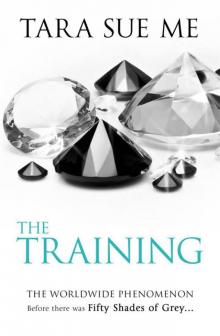 The Training tst-6
The Training tst-6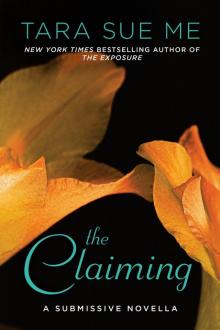 The Claiming
The Claiming